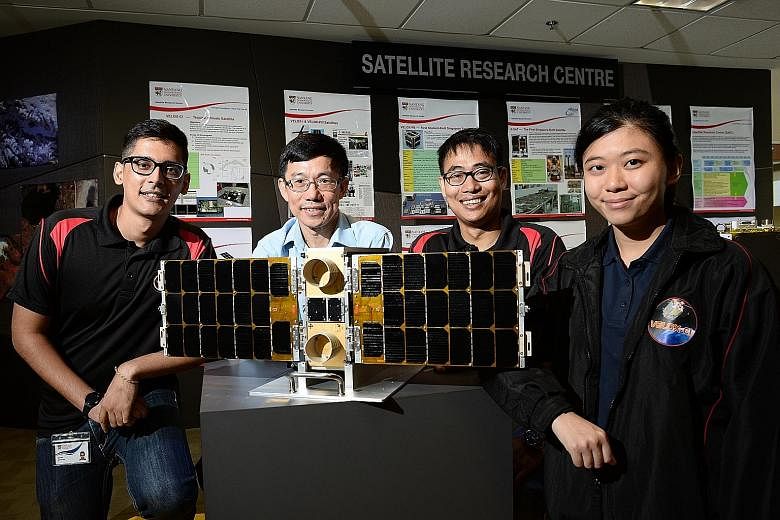The country's plan to pump $19 billion into science and technology over the next five years could "make Singapore a 'go to' destination as a global innovation and entrepreneurship hub".
This is the view of Professor Gerard George, dean and professor of innovation and entrepreneurship at the Lee Kong Chian School of Business at Singapore Management University (SMU).
Like him, many in the research community have reacted positively to Research, Innovation and Enterprise (RIE) 2020, which was announced by Prime Minister Lee Hsien Loong last Friday.
It will allocate $19 billion over the next five years towards developing Singapore as a knowledge-based, innovation-driven and future-ready economy and society. It is 18 per cent higher than the previous five-year budget of $16.1 million.
The plan will see researchers having to compete more for funding, as well as more being done to take discoveries to market. "I am pleased to see RIE2020 respond emphatically to calls for strengthening our entrepreneurial ecosystem and focus on commercialisation of technology and scaling it up for global markets," Prof George added.
Research institutions here are geared up to tap into the opportunities offered by the new plan.
For example, the National University of Singapore's Faculty of Engineering said its dean, Professor Chua Kee Chaing, has been "promoting greater collaboration between engineers, clinicians and scientists in partnership with the National University Health System since the early 2000s".
The collaboration fosters the development of innovative technological solutions to healthcare challenges, the kind of multidisciplinary applied research that would be very much at home in RIE2020.
The funding will focus on four core technological domains - advanced manufacturing and engineering; health and biomedical sciences; services and digital economy; and urban solutions and sustainability.
Beyond these, Nanyang Technological University's (NTU) chief of staff and vice-president of research, Professor Lam Khin Yong, highlighted the $2.5 billion set aside for the so-called white space - to look into previously unanticipated emerging topics.
Prof Lam said: "In the past few years, NTU has been actively scanning the horizon to identify new areas of growth." He gave examples of recent advances made by the university in areas such as satellite development, new materials for clean technology, and renewable energy.
In addition, Assistant Professor Cheong Siew Ann, deputy director of NTU's Complexity Institute, said that many of the challenges faced by Singapore are likely to be complex, and "the most obvious 'solutions' could lead to unintended consequences".
This, he said, is where the relatively new field of complexity science, which studies how things behave when they are interconnected with one another, could offer novel solutions. "I certainly hope to find opportunities within RIE2020 to grow and establish NTU as the complexity science hub in Asia," Prof Cheong added.
When asked about the impact RIE2020 would have on early- and mid-career researchers carrying the baton into the future, Professor Thomas Magnanti, president of the Singapore University of Technology and Design (SUTD), said that youth has its advantages.
The relatively young faculty and researchers at SUTD, for example, are looking for innovative ways to establish their careers and are less anchored on traditional research domains. "Thus they are in a good position to move swiftly into the RIE-identified fields," he added.
Overseas experts also gave RIE2020 the thumbs up, particularly as the enhanced budget comes at a time when many other countries are cutting back on research spending.
Professor Robert Brown, president of Boston University and a member of the Research, Innovation and Enterprise Council (RIEC), praised the Government's commitment to research and development.
He said: "The United States deals with one-year budgets and, in good years, we actually have a budget... The government (here) does a tremendous job trying to execute that plan and is very self-critical about when they succeed and when they do not."
PM Lee is chairman of the RIEC which is made up of Cabinet ministers and distinguished local and foreign businessmen and scientists.

